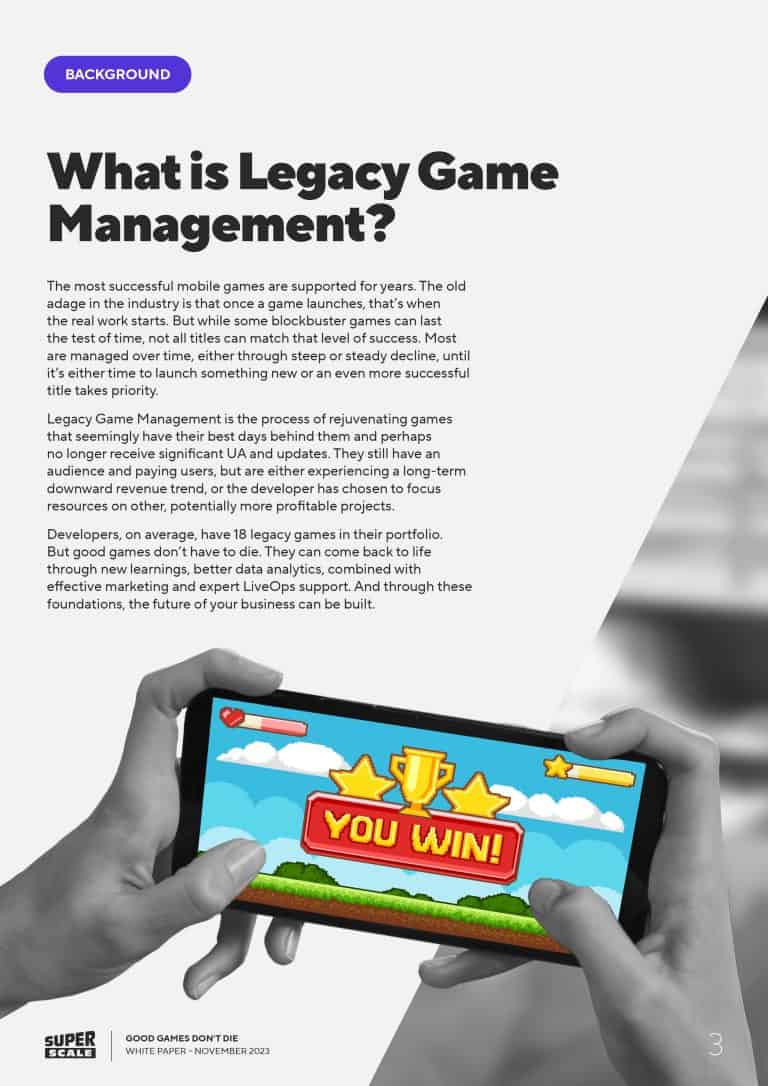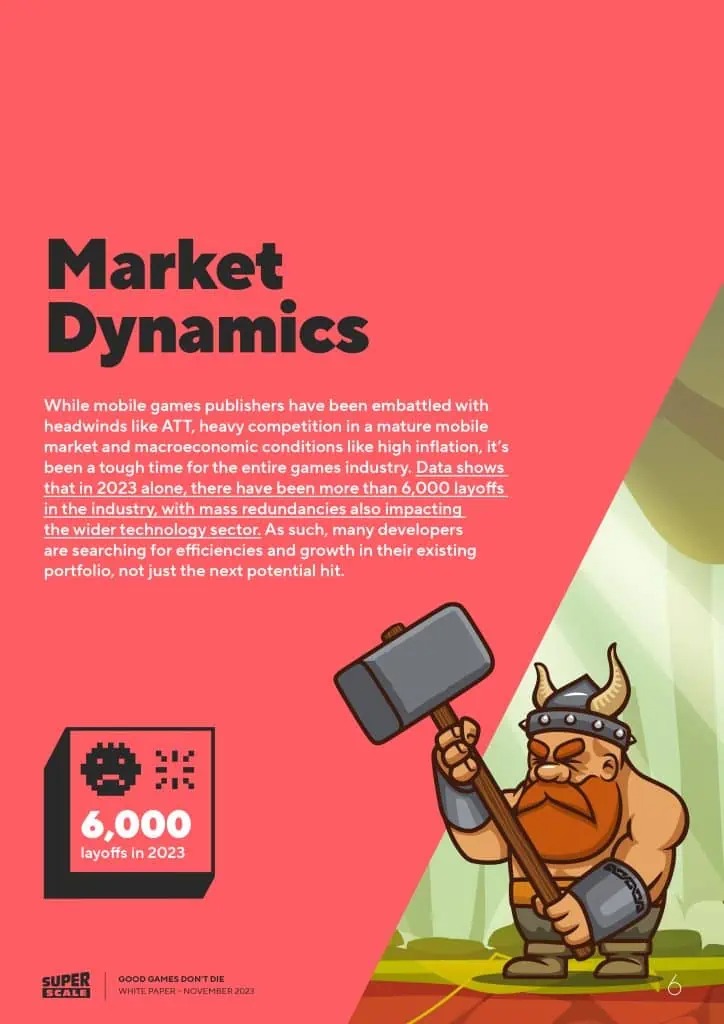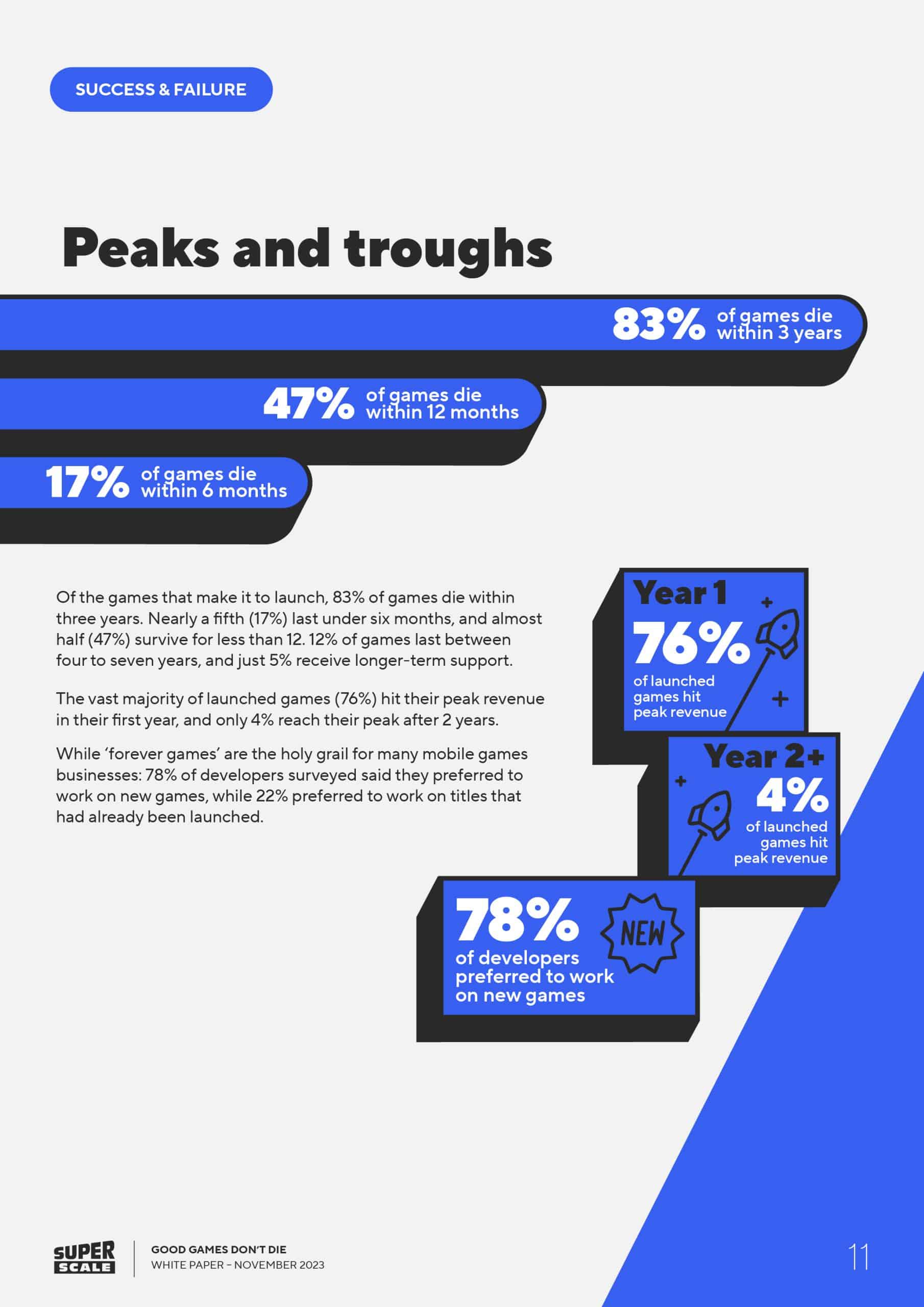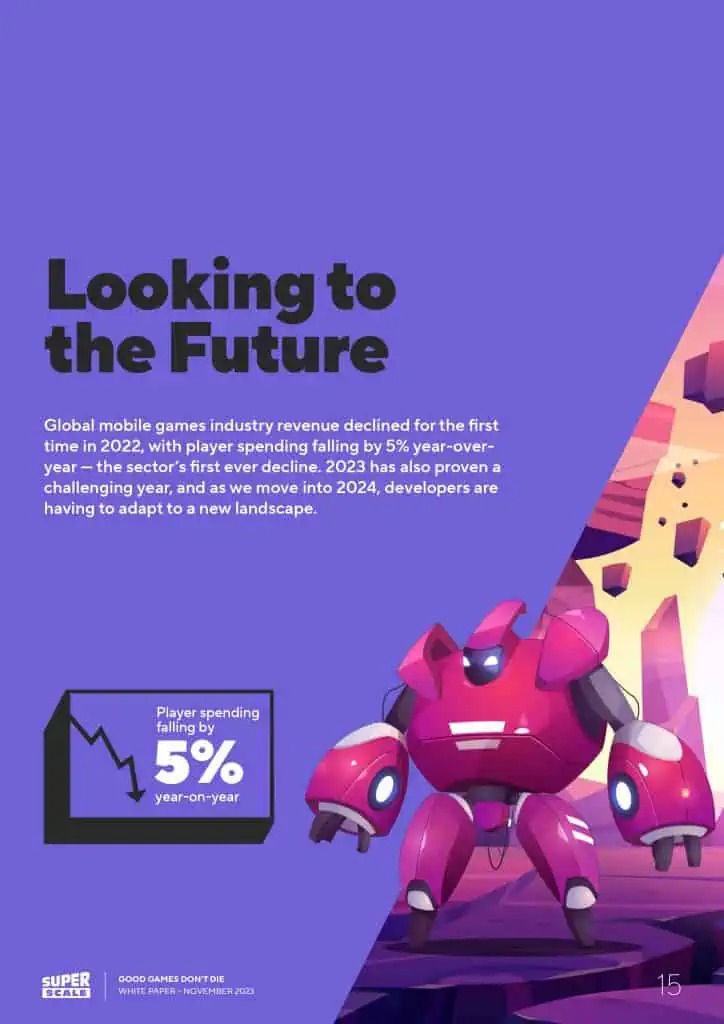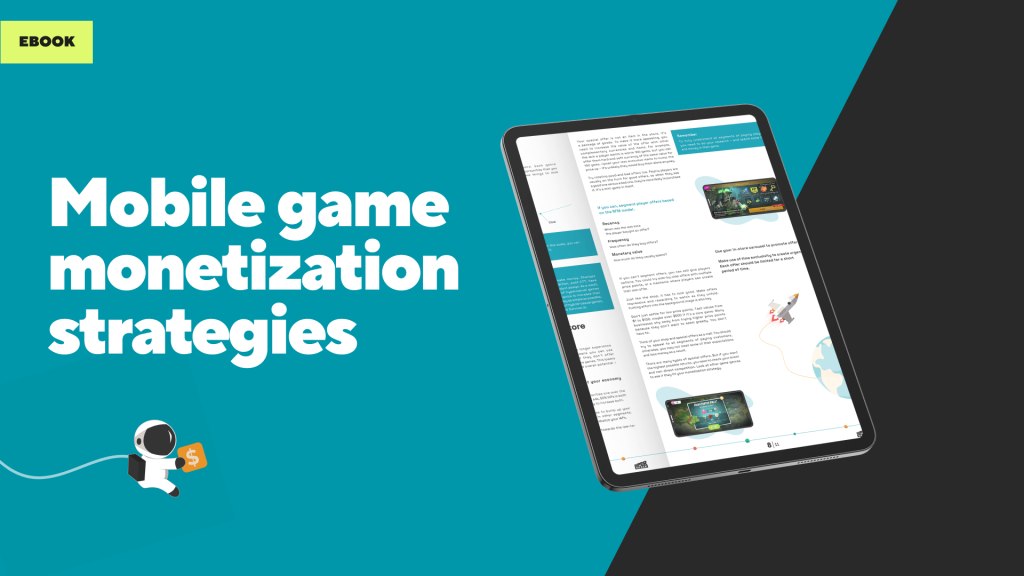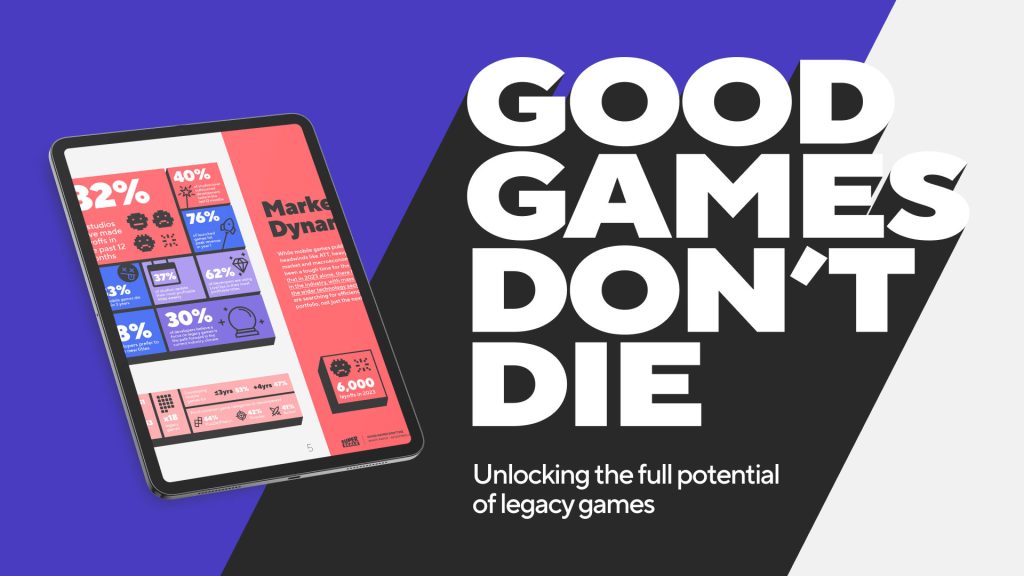
With the industry at a critical inflection point, many developers are asking, ‘Where do we go from here?’ We asked over 500 game developers about how they’re managing their portfolios in the current landscape. The answers make essential reading for anyone in the sector today.
Our CEO, Ivan Trancik says “These are volatile times for the games industry. Many mobile game developers are finding it hard to remain profitable in the face of challenges such as ATT, heavy competition in a mature mobile market, and macroeconomic conditions like high inflation. 83% of games are flat-lining in the first three years is an eye-opening statistic, which indicates a new mindset is needed within the industry. Findings from the ‘Good Games Don’t Die’ white paper serve as a wake-up call for the industry, a source of inspiration with actionable data; equipping developers and publishers with insight on how revenue can be maximized across their portfolio – for games both new and old.”
READ SOME OF OUR KEY FINDINGS BELOW👇
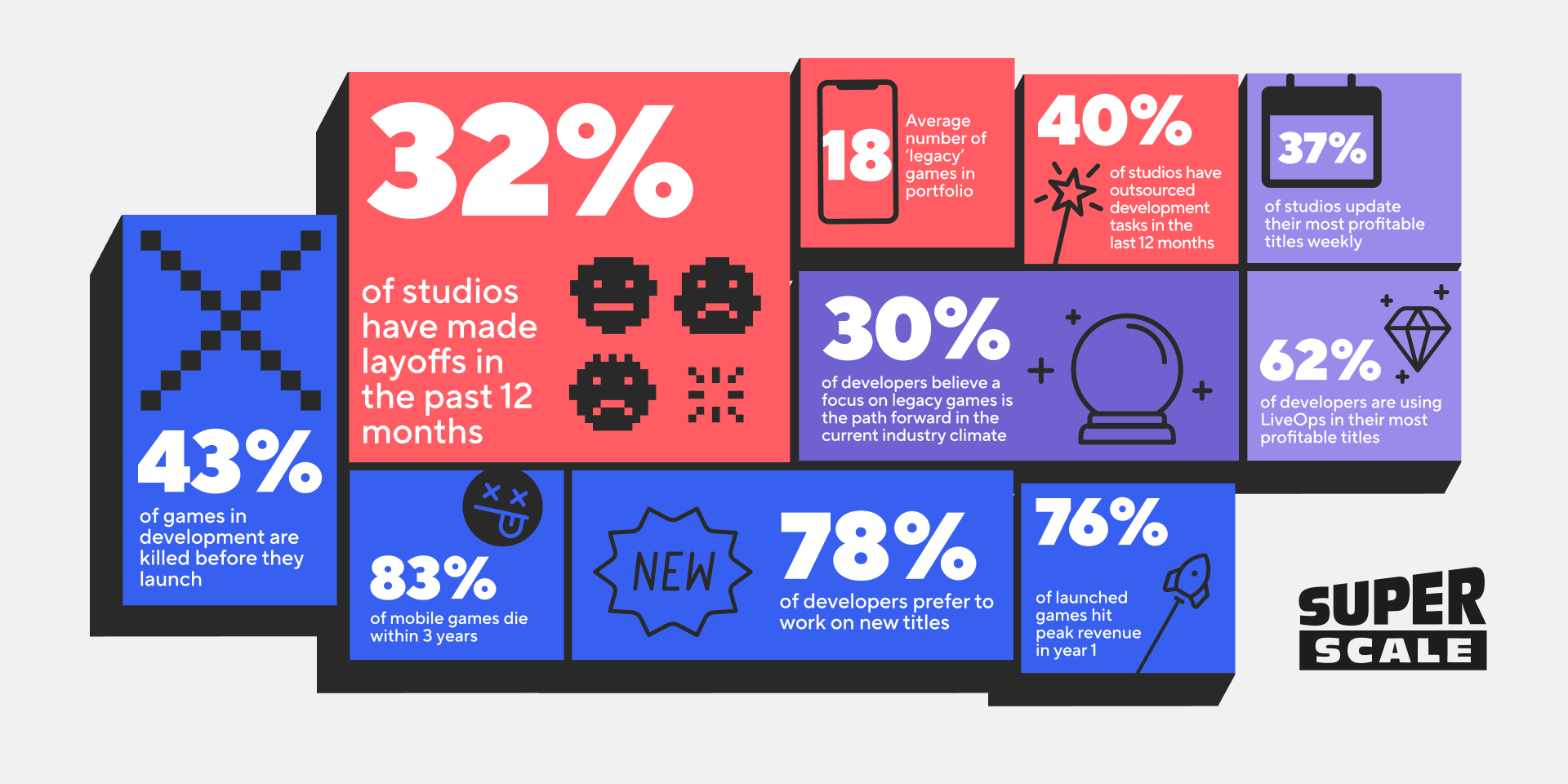
WHAT IS LEGACY GAME MANAGEMENT?
The most successful mobile games are supported for years. The old adage in the industry is that once a game launches, that’s when the real work starts. But while some blockbuster games can last the test of time, not all titles can match that level of success. Most are managed over time, either through steep or steady decline, until it’s either time to launch something new or an even more successful title takes priority.
Legacy Game Management is the process of rejuvenating games that seemingly have their best days behind them and perhaps no longer receive significant UA and updates. They still have an audience and paying users, but are either experiencing a long-term downward revenue trend, or the developer has chosen to focus resources on other, potentially more profitable projects.
A SNEAK PEEK INSIDE THE GOOD GAMES DON’T DIE WHITE PAPER

